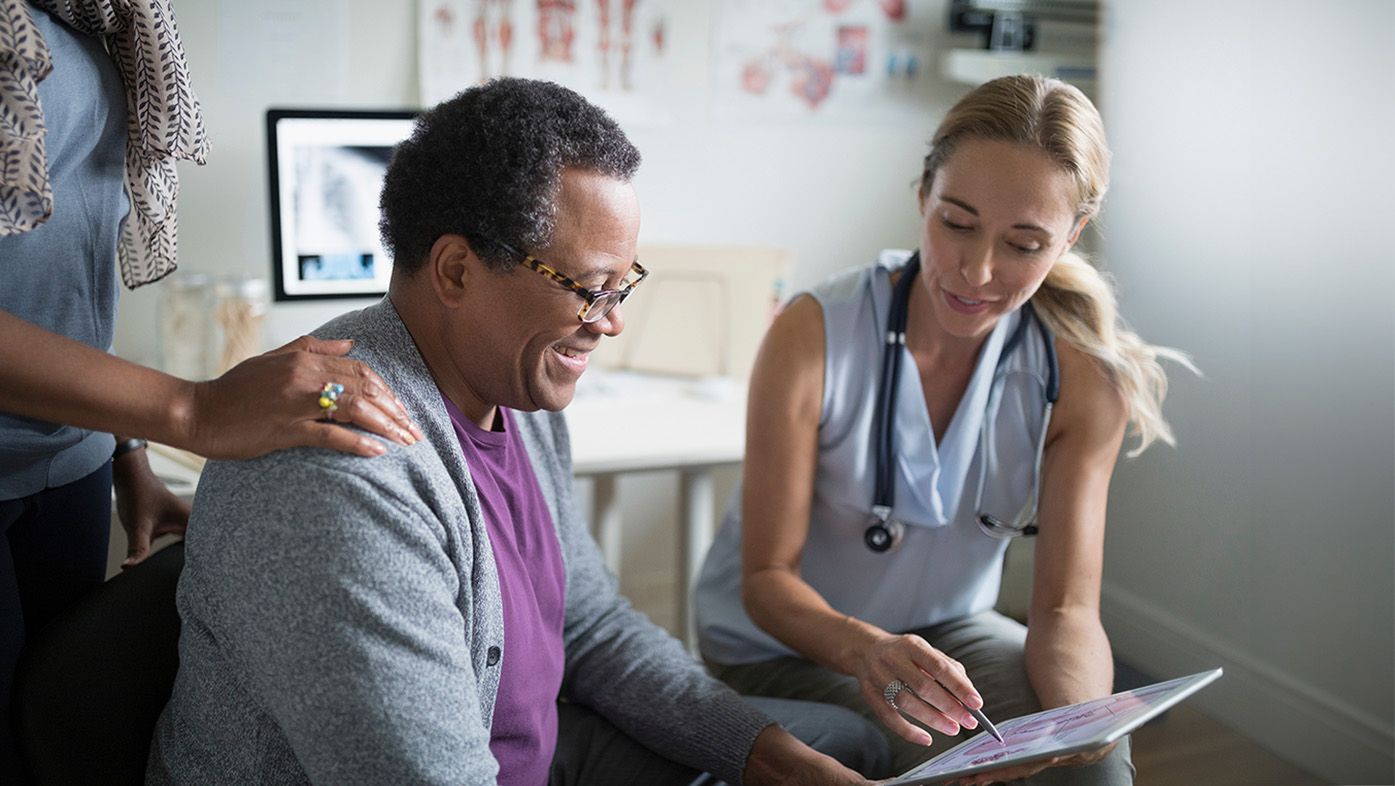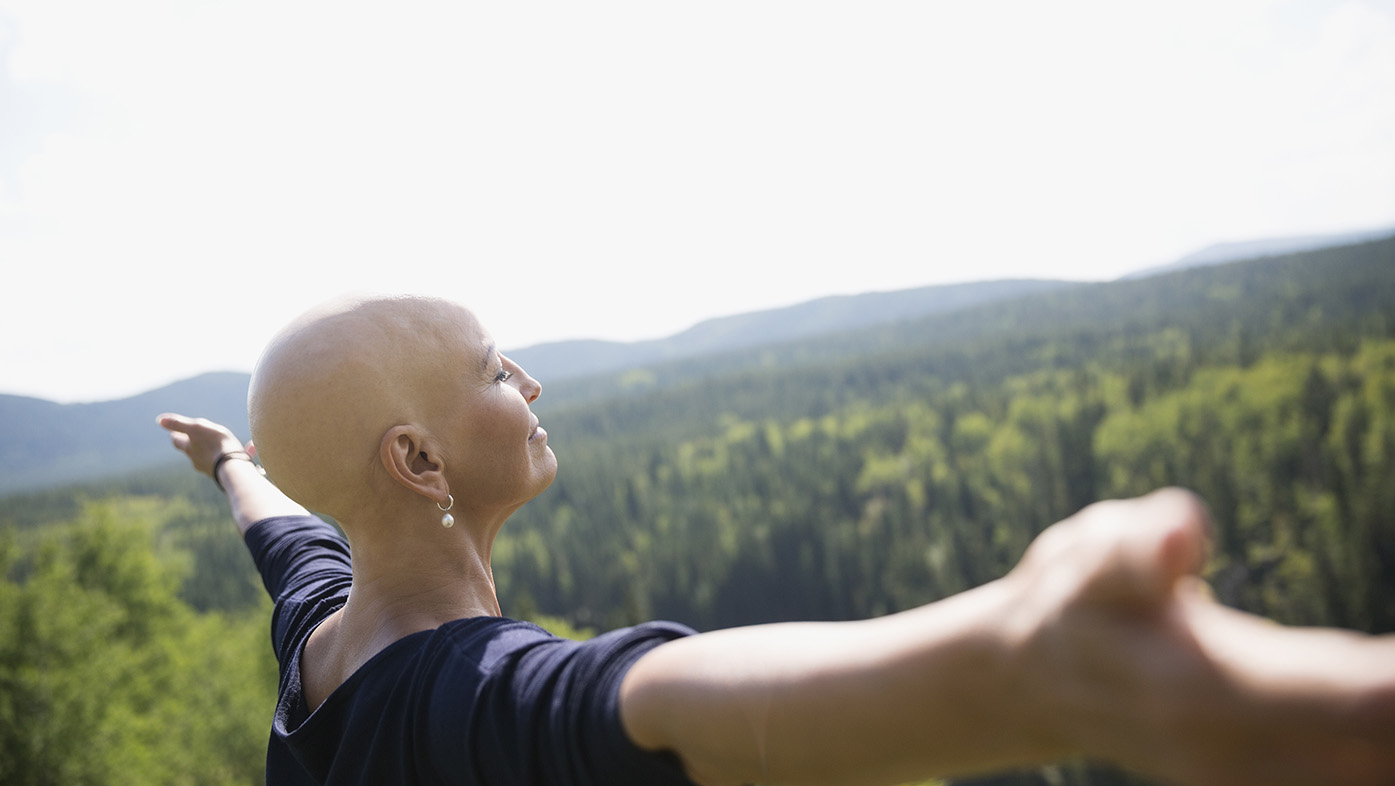Access to quality healthcare shouldn’t be an accident of geography. Unfortunately, all too often it is.
If you happen to live in sub-Saharan Africa and your child receives a diagnosis of cancer, the outlook is grim. There’s a 90% chance that your child will not survive. For those who live in the United States, it’s a different story: more than 80% of childhood cancers are cured.
This kind of healthcare disparity goes right to the heart of the Bristol Myers Squibb Foundation* and its mission to provide health equity for all. In 2016, spearheaded by pediatric oncologist David Poplack, M.D., at the Texas Children’s Hospital, and with a $50 million initial donation from the BMS Foundation, Global HOPE (Hematology-Oncology Pediatric Excellence) was launched. Its goal: to strengthen the healthcare infrastructure in sub-Saharan Africa, through a capacity building effort, so that children diagnosed with cancer get the type of treatment they need in order to have outcomes comparable to those in resource-rich countries like the U.S.
Poplack, the director of Global HOPE, is dedicated to saving lives, and he considers the BMS Foundation the ideal partner. “Without the Bristol Myers Squibb Foundation,” he said, “we could not have formed Global HOPE. Their initial donation enabled us to set up centers for treatment and to develop training programs for physicians, nurses, pharmacists and community workers.”
It’s a daunting challenge. It is estimated that more than 100,000 children in Africa contract cancer or blood disorders each year. By contrast, in the U.S. the number is approximately 15,000. The sobering fatality rate has a number of causes: lack of healthcare providers who are trained to diagnose and treat childhood cancers, a dearth of medical facilities, and poor or no access to the necessary drugs used to treat cancers. The good news is that thanks to the efforts of Global HOPE, the outlook for children and their families in Africa is brighter every day.
The initiative reached a significant milestone last month: reaching its 10,000th pediatric patient. As pleased as he is about this accomplishment, Poplack proudly pointed to something else: “Prior to Global HOPE, there were few, if any, pediatric oncologists in all of Africa. A major focus of Global HOPE has been to formally train African pediatricians in a two-year training program to become experts in pediatric hematology-oncology. As of today, we have graduated 20 pediatric hematology-oncology specialists. That’s what has enabled us to reach the 10,000 milestone. The fact that we’ve done this in just four years is remarkable, and we’re only going to get bigger over time.”
Global HOPE has treatment and training centers in Botswana, Malawi, Tanzania and Uganda. These centers are training healthcare providers from around the continent, who are then establishing pediatric oncology departments in their home countries. To date, in addition to treating 10,000 young patients and minting 20 new pediatric oncologists, the program has trained more than 4,500 healthcare professionals.
Embracing innovation to bridge the distance
An important factor in the program’s success has been its embrace of a robust telementoring platform that has enabled the training of healthcare providers in areas far removed from a physical facility. According to Phangilise Mtshali, who has served as the Foundation’s director in Africa for 20-plus years, telementoring has been a game changer, especially as Africa (and the rest of the world) is grappling with the challenges of the COVID-19 pandemic.
“The pandemic really destabilized the healthcare system, not just in Africa but around the world,” Mtshali said. “But telementoring has been incredibly effective, for training nurses in particular. By forcing us to expand our use of virtual learning technologies, the pandemic set the stage for us to amplify our efforts and cast a wider net.”
The net cast by Global HOPE is both wide and fine, because especially with childhood cancers, early diagnosis and treatment is vitally important. “If a child is stricken ill,” said Mtshali, “the whole family is shaken. When it comes to cancer, it is essential that parents go beyond community-based traditional healing. We have to heighten the index of suspicion that healthcare workers bring to a case that has symptoms associated with childhood cancers, so that they know when to refer a child for further medical investigation. That’s one focus of the training Global HOPE provides.”
John Damonti, president of the Bristol Myers Squibb Foundation, reflected on the treatment milestone: “The disparity that Global HOPE is focused on couldn’t be more stark. Twenty years ago, we faced numbers just as stark when we first took on pediatric HIV on the continent of Africa with the Baylor International AIDS Initiative, Texas Children’s and five African countries in the SECURE THE FUTURE (STF) program. Over the past two decades, STF was able to develop the largest treatment network in the world, treating over 1 million children, and still has 375,000 children in the Baylor/BMS network. The ability to apply our valuable learnings from STF coupled with our ever-increasing emphasis on cancer made this challenge one we knew we had to take on.”
“David and his team are already having great success addressing it and we are incredibly proud to have been able to bring this partnership together based on what we learned worked, as well as what didn’t,” Damonti added. “Over the decades and many countries in which the BMS Foundation has been supporting programs to address health disparities, there has never been a more important or impactful effort.”
Looking ahead, Poplack is hopeful about the future of Global HOPE. “We just passed the 10,000 child milestone. I expect that over the next five years, we will dramatically increase that number. We want to train more healthcare providers, reach even more children, save even more lives, and dramatically shift the disparity of health outcomes that we see today. That’s our ultimate goal, and I’m confident we will be successful.”
*The Bristol Myers Squibb Foundation is a nonprofit charitable entity that is separate and independent from the BMS company.


